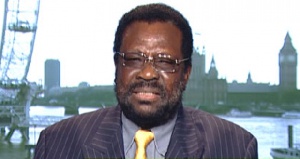There are two answers to the question, “Who founded Ghana”.
If you are an Nkrumahist, the answer is simple: Kwame Nkrumah, as the prime minister who received the instruments of Ghana's independence from the Duchess of Kent on 6 March 1957, automatically became the “founder of Ghana.”
But if you are from what's called the Danquah-Busia political tendency, the idea that one man “founded”Ghana is absurd. A tree does not consist only of its foliage, its branches or its stem. It's also got roots, and although the roots, being underground, are not visible, that does not mean that they do not exist. Moreover, without the roots, a tree wouldn't be able to draw plant food from the soil, to transport through its stem and branches to the leaves, where the plant food is turned into energy, through a process known to science as “photosynthesis”.
Narrowing Ghana's history down to a “founder” (one person) is therefore flawed. But, of course, the question can never be answered to the satisfaction of everyone. That is because history enters our brains through several filters, the most important of which is the political persuasion of the person writing it.
I have the authority of no less a person than the retired Professor of History at the University of Ghana, Dr Robert Addo-Fening (about whom I have been writing in recent articles) for pointing out the subjective nature of much of what we call history. Professor Addo-Fening sat down and penned an instructive paper on the nature of history, as soon as the controversy broke out over the question of whether Ghana had one or more founders.
He tells us that in his book, Uses and Abuses of Power published in 1970 (University of Chicago Press), a Ghanaian political scientist in the US, Maxwell Owusu, observes that “in situations of social change, as groups and individuals compete for political and economic advantages,” [they strategically] reinterpret, redefine, and manipulate tradition or custom. (p5)”.
Prof Addo-Fening writes: “This observation will no doubt resonate with our countrymen who regret what appears to be a calculated attempt by some of our countrymen to distort the historical reality of our recent past for partisan political advantage. Nineteenth-century England went through a similar experience which developed out of the long-standing political feud between Protestantism and Catholicism from the 16th century. In some ways, I see what is happening in our country as a throwback to the 19th-century wrangle between the ‘predecessor’ parties of modern-day Tory and Liberal parties in the United Kingdom, which led to abuse of the process of historical reconstruction, known to historians as the Whig interpretation of History.”
The Whig interpretation of history [the Prof tells us] developed out of the debates between the WHIGS (now the Liberal Party), and the TORIES (now the Conservative Party) over the English Revolution of the 17th century. The long-standing political feud between Protestantism and Catholicism in the time of King James 11 (1685-89) resolved itself into a conflict between 'Royal Absolutism' on the one hand, and Parliamentary Democracy and personal liberty on the other.
In the 18th Century, the Protestants became identified with the Whigs while the Catholics aligned themselves with the Tories. Under King George 1 (1714-1761) the Whig land-owning aristocracy who had played a leading role in the Revolution of 1689, achieved supremacy and enjoyed majority representation in the House of Lords.
But this changed later when English public opinion was swept by a strong counter-current against the Tories. . The Whigs rode on the crest of the counter current, raising the ‘Reform’ as their battle cry. Behind the Whigs were the radicals who threatened revolution.
Prof Addo-Fening tells us: “Nearly all British historians of the 19th century, without exception, regarded the course of History as the ‘unfolding of the principle of human progress. Progress became the measure of History and the ideology of a confident, rapidly progressing Britain. In the political wrangle that ensued, each side appealed to history, reading and interpreting the English Revolutions of the 17th century to its advantage. While the Whigs held up the revolution as a warning, the Radicals held it up as a deterrent.”
For instance, the Historian Pieter Geyl, criticised one of the most famous historians of England, Macauley, pointing out that Macauley's “distorted picture” of the period Macauley wrote about was “a function of the fact that Macaulay ‘came to the contemplation of the past with a mind brimming over with ideas and sentiments about the present’. Hence, Macauley was not able to avoid ‘the temptation to judge men and events of earlier ages ‘by the dictates of the preoccupations of his own time or age’.
Prof Addo-Fening comments that it is this mental attitude to the past, an attitude which is “unhistorical” in the deepest sense, that is referred to as the Whig interpretation of History.” It is an attempt to ‘imaginatively transpose’ oneself into the past and ‘make intellectual adjustments’ when a historian confronts a generation earlier than his.
For Macaulay and other historians of the Whig tradition, a past event has relevance for them only in so far as it serves their generation. Adherents of the Whig interpretation of History study the past for the sake of the present, not in an effort to understand the past for the sake of the past.”
But, the Prof warns, “the importance of unbiased history in national development is not in doubt. An unbiased, non-discriminatory, non-controversial reconstruction of our country’s past can be a powerful tool for forging a sense of shared destiny, which will strengthen the camaraderie between social groups in our multi-ethnic and multi-cultural society. By the same token, any calculated attempt to abuse History by using our past to discredit any group for unfair political advantage will polarize and paralyse our society. History should not be a figment of any body’s imagination. It must be based on evidence, essentially bits of the past that have left ‘traces’ of itself, traces that the historian calls ‘sources’; bits which have survived in a variety of forms: documents, archaeological remains, eyewitness accounts and oral tradition.
“It must seek to paint a picture of the past, by connecting individual events together into a coherent account. Admittedly, there is a greater element of subjectivity in history than in science. A body of propositions is described as ‘objective’ if it is the case that all persons who seriously investigate them will accept them because it has a universal character which makes it impartial and impersonal. Two or more competent scientists, given the same evidence, will achieve the same results. Objectivity of science is not a function of their subject matter. It arises from the existence of clearly defined, standardized methodologies or procedures.
“Historical works [on the other hand] are incapable of achieving the same extent of objectivity as scientific works because knowledge acquired by the scientific method is demonstrable or verifiable. By contrast, historical conclusions are subjective because of the element of interpretation.”
The full paper written by Prof Addo-Fening is being made available to the editor of The Daily Guide and my hope is that it will be published in subsequent editions of the paper soon.
Opinions of Saturday, 19 August 2017
Columnist: Cameron Duodu















